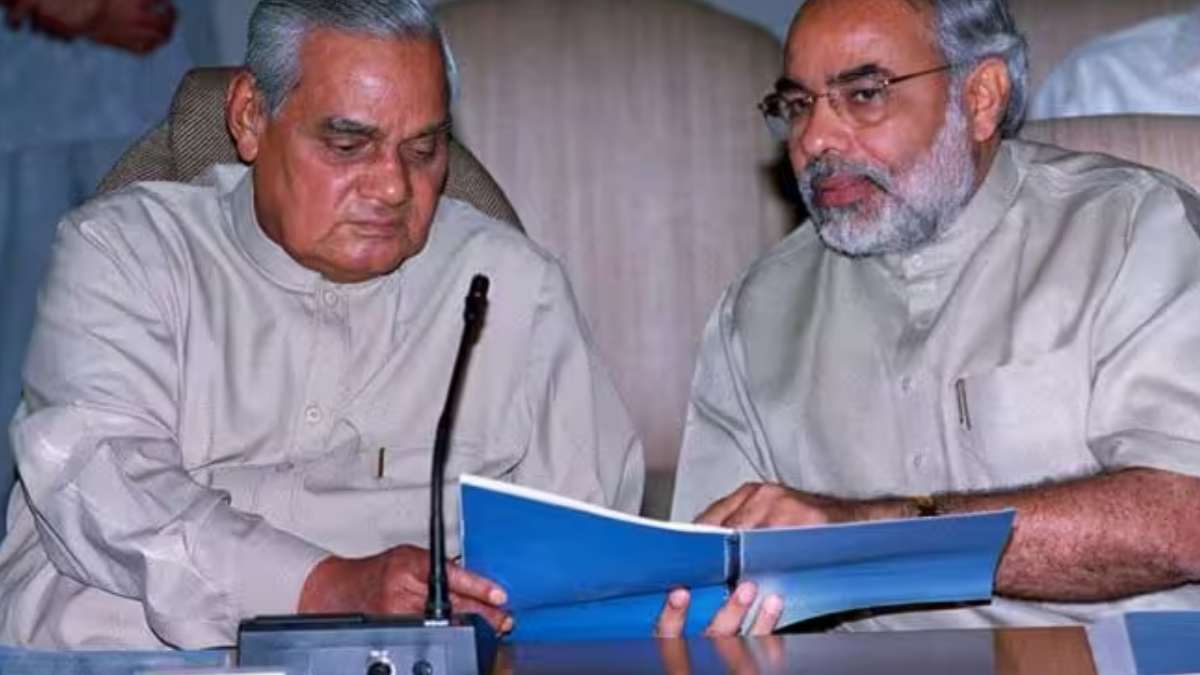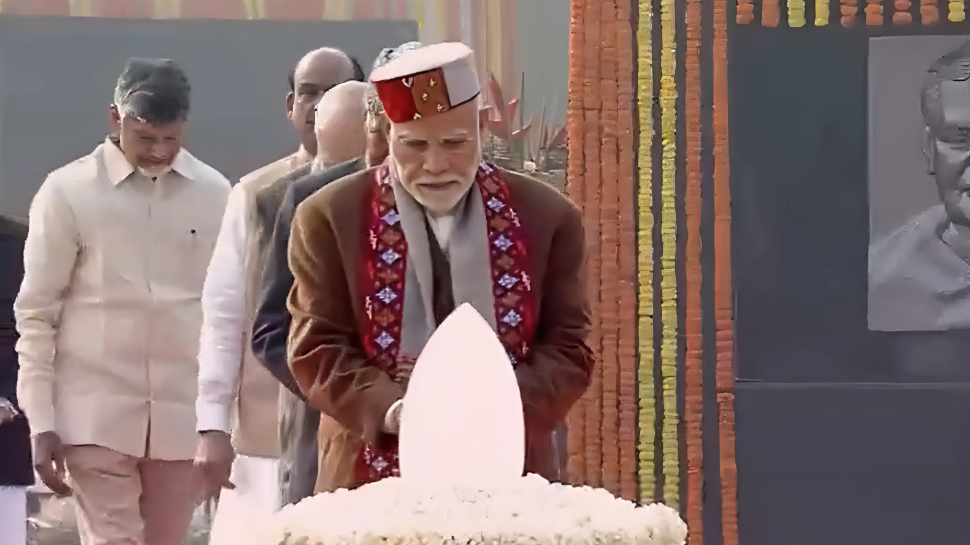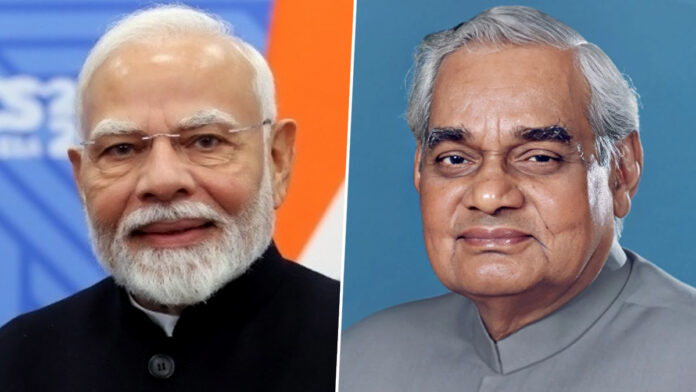Today, December 25, marks the 100th birth anniversary of Atal Bihari Vajpayee, India’s beloved former Prime Minister. Reflecting on his legacy, Prime Minister Narendra Modi highlighted Vajpayee’s enduring impact on Indian democracy, governance, and progress. A towering statesman and visionary, Vajpayee’s leadership transitioned India into the 21st century, fostering stability, unity, and innovation during a time of political turbulence.
Atal Bihari Vajpayee: The Architect of Modern Governance
When Atal Bihari Vajpayee assumed office as Prime Minister in 1998, India was grappling with political instability and skepticism about government efficacy. Over nine years, the country had witnessed four Lok Sabha elections. Vajpayee’s stable and effective governance reversed this trend, bringing confidence to the Indian populace.
Born into humble beginnings, Vajpayee’s empathy for the struggles of ordinary citizens fueled his transformative policies. His administration championed technology, launching initiatives that made information technology and telecommunications accessible to millions. Projects like the Golden Quadrilateral and Pradhan Mantri Gram Sadak Yojana revolutionized connectivity, uniting regions and catalyzing economic growth. His era also laid the foundation for Delhi Metro, a world-class infrastructure project symbolizing India’s progress.
Economic and Social Reforms
Vajpayee’s tenure was marked by ambitious reforms. His government’s focus on economic liberalization broke decades of cronyism and stagnation, setting the stage for India’s growth surge. The Sarva Shiksha Abhiyan, aimed at universalizing elementary education, was a significant step in empowering marginalized communities through education.
He also demonstrated unparalleled resilience during Operation Shakti, conducting nuclear tests in 1998 despite international sanctions. These tests underscored India’s scientific prowess and reinforced its sovereignty while emphasizing the pursuit of global peace.

Championing Indian Democracy
As the founder of the National Democratic Alliance (NDA), Vajpayee redefined coalition politics, proving that diverse ideologies could unite for national progress. His parliamentary brilliance, even as a leader of a small opposition party, showcased his ability to challenge powerful adversaries like the Congress Party with grace and conviction.
Vajpayee’s integrity shone through during critical moments, such as his resignation in 1996 to avoid horse-trading and his steadfast adherence to constitutional values. His leadership during the anti-Emergency movement and his decision to merge the Jana Sangh with the Janata Party in 1977 to protect democratic principles exemplified his commitment to the nation.
Pride in India’s Heritage
Vajpayee’s deep connection to Indian culture and language was evident when he became the first Indian leader to address the United Nations in Hindi. This act of cultural pride resonated globally, affirming India’s identity on the world stage.
A prolific poet and writer, Vajpayee’s works captured his struggles, dreams, and hopes for the nation. His words continue to inspire generations, embodying a profound sense of patriotism and reflection.
A Guiding Light for the BJP
For Prime Minister Modi and countless Bharatiya Janata Party (BJP) karyakartas, Vajpayee’s mentorship was foundational. Alongside leaders like L.K. Advani and Murli Manohar Joshi, he nurtured the BJP, steering it through challenges with unwavering commitment to ideology over power. His ability to present an alternative vision to Congress dominance reshaped Indian politics, fostering a governance model rooted in accountability and inclusivity.
)
Honoring Atal Ji’s Legacy
On his 100th jayanti, Prime Minister Modi called upon the nation to rededicate itself to Vajpayee’s ideals of good governance, unity, and progress. Vajpayee’s belief in India’s potential serves as a guiding force, inspiring citizens and leaders alike to strive for a brighter, stronger future.
As the country remembers Atal Bihari Vajpayee, his legacy remains a beacon of hope and a testament to the transformative power of visionary leadership. His life and work remind us that true governance is rooted in service, integrity, and an unyielding belief in the promise of the nation.

